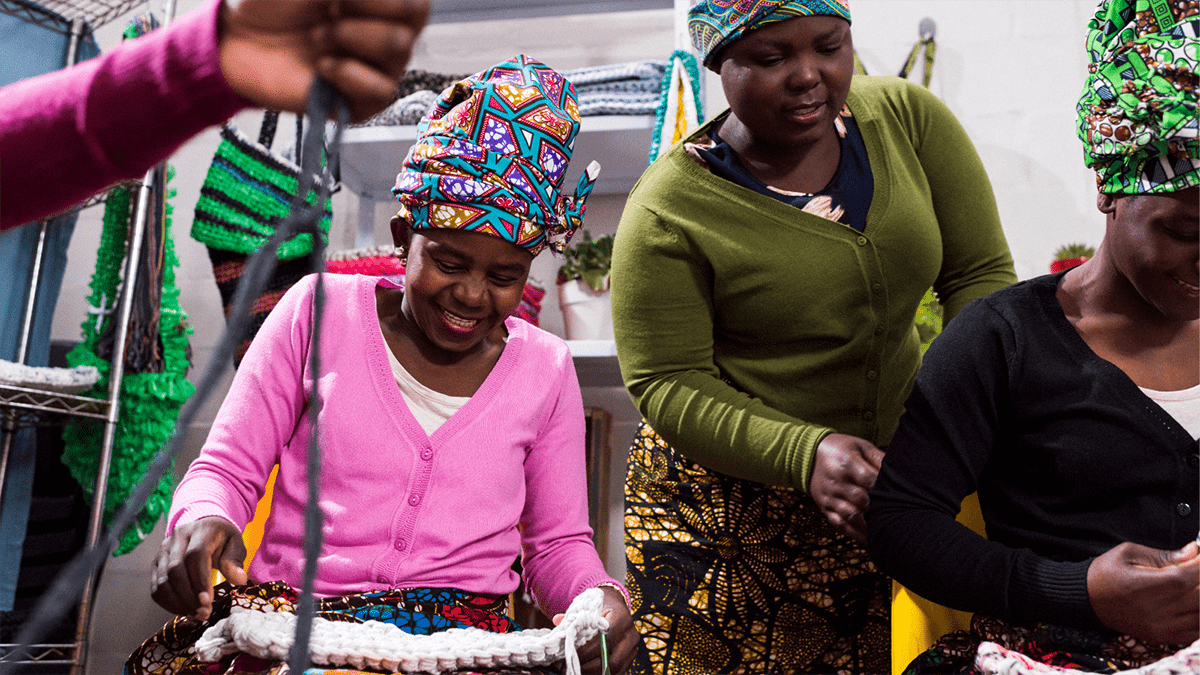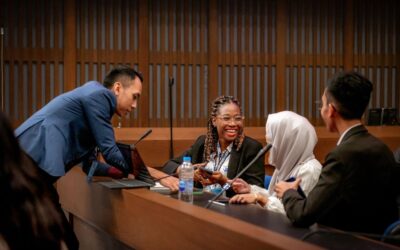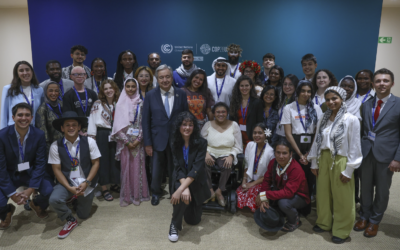By Anita Dywaba and Kelechi Achinonu
The past few weeks at the United Nations Foundation have been incredible! We just launched the Engine Room: an open space where young changemakers from around the world can collaborate online, design solutions, and make a real impact. As it’s Women’s History Month, we wanted to share something that really caught our attention during the Big Brainstorm – the crucial role of innovation in promoting gender equality and justice.
“Gender equality is growing more distant. On the current track, UN Women puts it 300 years away.”
UNSG António Guterres at the Commission on the Status of Women
On International Women’s Day, United Nations Secretary-General António Guterres noted the fact that according to the latest estimates from UN Women, gender equality is “300 years away”. This sobering revelation highlights the need for innovation.
Gender equality is universally recognised as a fundamental human right. As part of the United Nations’ Sustainable Development Goals (SDGs), SDG 5 explicitly aims to achieve gender equality and empower all women and girls.
However, addressing long-standing gender disparities and injustices is a complex task that will require innovative approaches.
Gender inequality and injustice stem from deep-rooted societal beliefs that limit girls’ and women’s opportunities to thrive. Innovative solutions – like the ones we aim to foster in the Engine Room – can help to tackle these beliefs and gender disparities by:
Promoting equal representation of women in the media
Action Group innovator Jamila Karimi’s “Refugee Radio Programme” for example, aims to build community connections between Afghan women and provide employment opportunities for female Afghan journalists.
Educating young people
Educational programs that employ innovative approaches can contribute to gender equality by educating young people about the role of gender in social, economic, and political outcomes.
Addressing the gender digital divide
Although women have made progress in accessing digital technologies, they still face significant challenges in fully utilizing the potential of technology. For example, women are less likely than men to own smartphones, have access to the internet, or use digital tools for financial transactions. Innovative solutions, such as digital literacy programs, mobile banking, and e-commerce platforms, can help women to overcome these barriers and harness the potential of technology to improve their lives.
Empowering women financially
Access to finance, capacity building, and business support is an important way to provide women with financial independence. Action Group Innovator Nohora Quiguantar’s “Women Weaving in Science” project aims to do this in an innovative way by training indigenous female leaders in climate action.
Supporting women’s political participation and leadership
Emerging technologies can empower women to participate in decision-making processes, and hold elected officials accountable, and even run for political office. This includes virtual meeting platforms; e-voting; apps such as Count Me In and Change.org that can mobilize women to take political action and participate in advocacy campaigns; and even social media platforms like Twitter and Facebook that can raise awareness about gender justice issues and amplify women’s voices.
It’s clear then that innovation is absolutely vital if we are to achieve SDG 5.
This may seem daunting. After all, it’s natural to associate the word “ innovation” with new or complex technology that requires a lot of financing. Whilst this type of innovation is important however, innovation can be as simple as providing people with a new platform to tell their story.
During COVID-19, we saw a shocking rise in the number of Gender-Based Violence cases, with Kenya’s GBV cases rising well over 200%. Action Group Innovator Charity Adihambo’s Storytelling for Change aims to harness the power of innovation by providing a platform for creative change makers across Kisumu County – a Kenyan port city on Lake Victoria – to share their experiences of gender inequality and injustice, and to develop and amplify their unique voice.
This innovation will be focused on Informal Settlements in and around Kisumu and will highlight the voices of vulnerable women and girls between the ages of 15-28 through performances in order to foster community dialogue about gender based violence. It aims to engage women and girls, teach them about Effective Referral Pathways, and equip them to communicate and campaign by training them to produce short films and through Community Participatory Educational Theatre. Whilst innovation is crucial if we want to create a more inclusive and equitable world therefore, it doesn’t have to be high-tech, complicated or expensive. It is something that each and every one of us can foster in our daily lives.
If you are a young person passionate about gender justice and innovation, join the Engine Room here to join other young change makers to make an impact and design your own future.
Authors

Anita Dywaba
UN Foundation Next Generation Fellow for Gender Equality
Anita Dywaba is a Next Generation Fellow from South Africa coordinating the Gender Equality Action Group, which looks to address compounding issues impacting girls and women and to collectively identify and drive evidence-based solutions. She is a Girl Up leader and also involved in the Bridge Building initiative by UN Foundation, Women Wi and UN Women.

Kelechi Achinonu
UN Foundation Next Generation Fellow for Justice
Kelechi Achinonu is a Next Generation Fellow from Nigeria coordinating the Peace and Justice Action Group, which is looking at how we can provide young people with access to justice, taking justice out of the courtroom and into the communities in which they live. She is supporting Mott Foundation in the lead up to HLPF and also a Young Justice Leader with Pathfinders.



